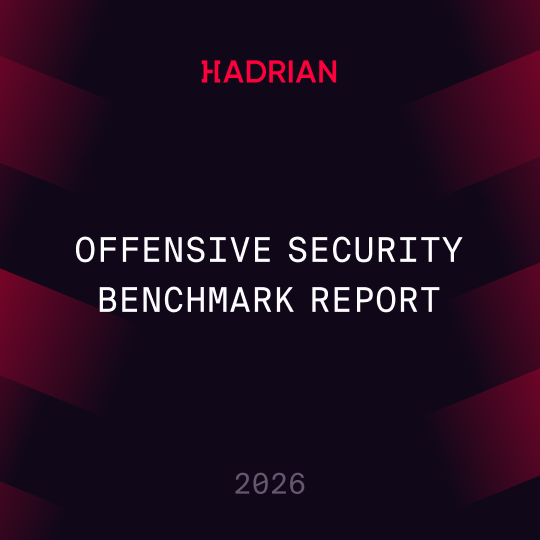
This blog post is part of a series; please see part one, The Development Methodologies: A Deeper Look, part two: DevSecOps and Waterfall: A Security Perspective in Software Development, part three: DevSecOps and Agile: A Security Perspective in Software Development, part four DevSecOps and Kanban: A Security Perspective in Software Development, and part five DevSecOps and Lean: A Security Perspective in Software Development.
In software development, methodologies like Extreme Programming (XP) and DevSecOps provide frameworks that focus on delivering high-quality software. However, their approaches to security and efficiency differ significantly. Understanding these differences can help organizations select the most suitable methodology to ensure a secure and efficient development process.
Extreme Programming (XP): Fostering Agility and Customer Satisfaction
Extreme Programming (XP) is an Agile methodology that emphasizes customer satisfaction through rapidly and frequently delivering valuable software. It focuses on continuous feedback, collaboration, and technical excellence. XP practices include pair programming, test-driven development (TDD), continuous integration, and frequent releases.
Security in Extreme Programming (XP)
In XP, security is often integrated into the development process through practices like test-driven development and continuous integration. However, XP’s primary focus is on delivering functionality quickly, which can sometimes lead to treating security as an afterthought. While the methodology encourages continuous feedback and iteration, addressing security concerns may only occur reactively unless explicitly prioritized by the team.
DevSecOps: Integrating Security into DevOps
DevSecOps extends the principles of DevOps by embedding security into every phase of the software development lifecycle. It advocates for Security as Code and a shift-left approach, ensuring that security considerations are integrated early and continuously throughout development. DevSecOps aims to make security a shared responsibility across development, operations, and security teams.
Security in DevSecOps
In DevSecOps, security is a fundamental, non-negotiable element. Automated tools are used for continuous security testing, vulnerability scanning, and compliance monitoring, ensuring that security keeps pace with the rapid development and deployment cycles. DevSecOps ensures that every release is secure by design, not just by adding security at the end of the process.
Comparative Analysis
Core Focus and Integration
Extreme Programming (XP) focuses on delivering high-quality software quickly through continuous feedback and collaboration. While it encourages technical excellence, security may not be as deeply integrated unless the team prioritizes it.
DevSecOps: Seamlessly integrates security into the entire development and deployment pipeline. Security is not an afterthought but a core component of the development process.
Role of Security
Extreme Programming (XP): Integrating security into XP practices like TDD and continuous integration is possible, but it is often not the primary focus. Addressing security is part of the broader goal of delivering high-quality software.
DevSecOps: Treats security as an integral part of the development process. Automated security testing, vulnerability scanning, and compliance checks are embedded in the CI/CD pipeline, ensuring that every code change is secure.
Efficiency and Collaboration
Extreme Programming (XP): Emphasizes rapid delivery and continuous improvement, which can lead to efficient development cycles. However, the need for frequent releases may sometimes cause teams to overlook security if not explicitly integrated into the teams’ process.
DevSecOps: Encourages collaboration across development, operations, and security teams, breaking down traditional silos. This integrated approach enhances security and improves efficiency by reducing the need for rework due to security vulnerabilities found late in the process.
Tooling and Automation
Both methodologies leverage tools to enhance efficiency, but DevSecOps places a stronger emphasis on security-specific tools such as static and dynamic application security testing (SAST/DAST), vulnerability management, and infrastructure-as-code (IaC) security tools that integrate directly into the CI/CD pipeline.
Pros and Cons
Extreme Programming (XP)
Pros:
- Rapid Delivery: Focuses on delivering functional software quickly.
- Customer-Centric: Emphasizes customer feedback and satisfaction.
- Continuous Improvement: Encourages constant learning and adaptation.
Cons:
- Security as a Secondary Concern: Prioritizing security isn’t part of the process unless teams explicitly integrate it into practices.
- Reactive Security: Addressing security issues will typically happen reactively, leading to potential vulnerabilities.
DevSecOps
Pros:
- Integrated Security: Embeds security throughout the development lifecycle.
- Automation: Automated security tools ensure consistent and efficient security practices.
- Shared Responsibility: DevSecOps fosters a culture where security is everyone’s responsibility.
Cons:
- Complexity: Requires significant changes in workflow and tooling.
- Learning Curve: Teams must adapt to new security practices and tools.
- Resource Intensive: Initial setup and maintenance can be resource-demanding.
Conclusion
While Extreme Programming (XP) provides a framework for rapid, customer-focused software delivery, it can fail to integrate security as a core component of the development process. On the other hand, DevSecOps is designed with security in mind, ensuring that every step of the development process is secure and efficient.
For teams using XP, incorporating DevSecOps aspects can enhance their security approach, making it more proactive and integrated. This hybrid approach could leverage the strengths of both methodologies—XP’s rapid delivery and customer focus, combined with DevSecOps’s rigorous security practices—to achieve a balanced, efficient, and secure development process.
Ultimately, while XP offers agility and customer satisfaction, DevSecOps provides a more comprehensive approach to security, making it the preferred choice for projects where security is a critical concern.





